As Zimbabweans Go Hungry, Here’s How Coronavirus Is Making Everything Even Worse – Especially for Women and Girls
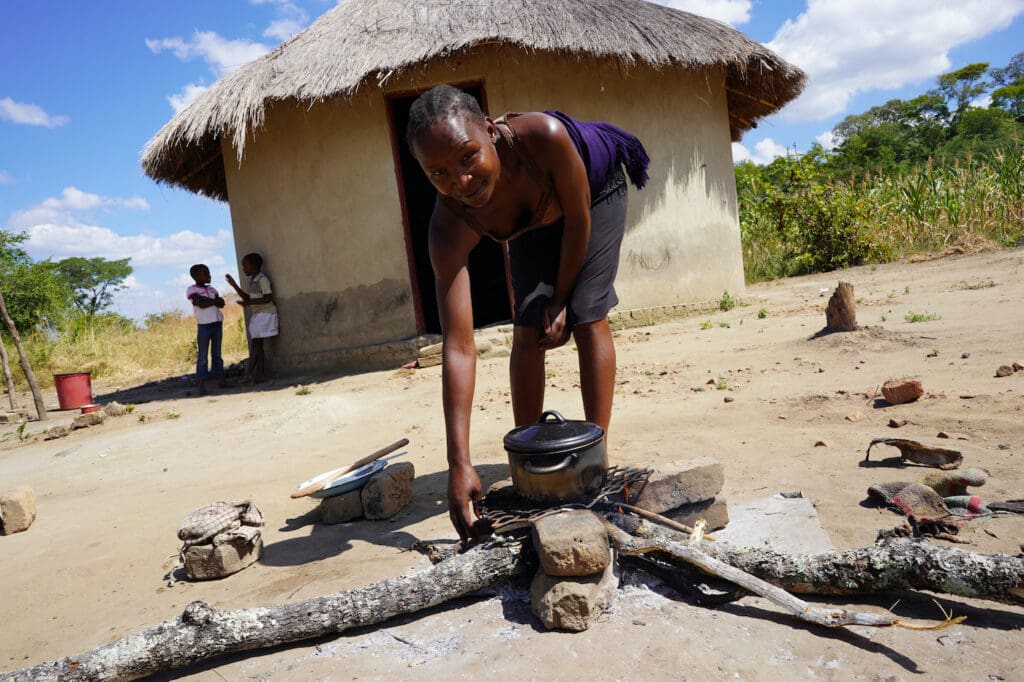
Under the growing threat of Coronavirus, a single mother shares her fears for her children – while Zimbabwe’s ongoing hunger crisis deepens.
At home and struggling
Just like millions of parents around the world, Rebecca Kapaira is balancing home-schooling her five children with trying to work so she can put food on the table — a daunting task.
“Being a single mother I have to work doubly hard, as the mother and the father,” says Rebecca. “I can’t buy the basics because the price it was yesterday is not the same as today. Our economy is so unstable it becomes difficult for us to survive.”
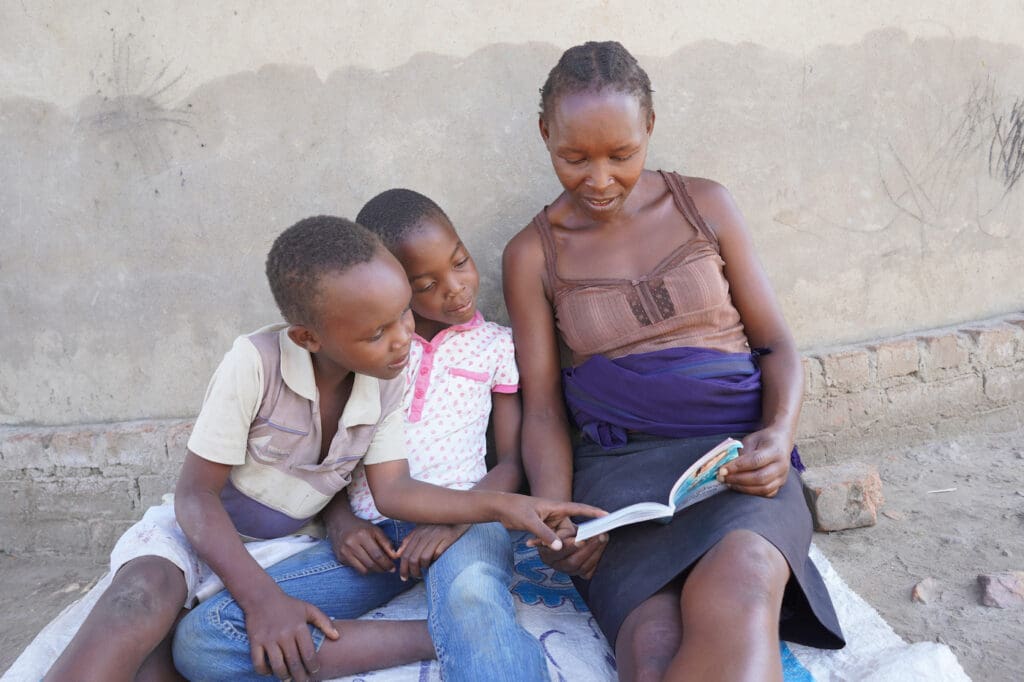
Rebecca reads to two of her children: they’re out of school during the pandemic.
When I’m visiting their home in Shamva district, in the Mashonaland Central Province of Zimbabwe, Rebecca’s seven-year-old daughter Kudzwai reads to her mother in word-perfect English from a science textbook (her first language is Shona). Kudzwai tells me:
“The teachers told us we had to go home from school because of coronavirus. And they told us not to touch our eyes, nose or mouth.”
It becomes clear that home-schooling is the least of Rebecca’s worries. What she fears most of all is not being able to put food on the table.
Farming is failing
Rebecca is a farmer and, like most Zimbabweans, she depends on just one, increasingly unreliable rainy season each year. Because of severe climate change-induced drought however, only one of the past five growing seasons has seen normal rainfall. This year’s harvest will not only be late — in June instead of April — but is expected to be the poorest in recent years.
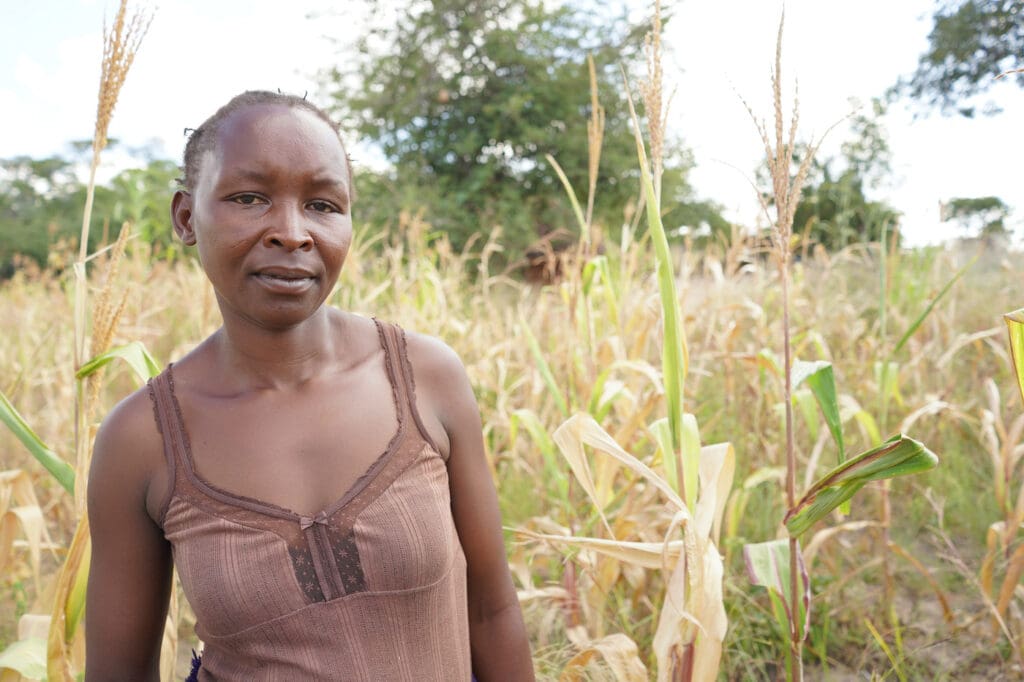
Her corn crop failed this year because of Zimbabwe’s severe drought. Coronavirus will further disrupt agricultural production.
“For the past two years we haven’t harvested anything,” says Rebecca, standing in her garden of sun-scorched corn. “Our community hasn’t been able to predict the rainfall patterns. Our timing seems wrong every time and the crops never mature enough to make it to harvest. There is nowhere to get food.”
“As the only breadwinner, I end up with nothing to give the children. I usually skip meals myself so they can eat.”
A perfect storm in Zimbabwe
Life is becoming harder each day for the family. Hyperinflation has sent food prices soaring dramatically, which erodes purchasing power — in December, food inflation was at more than 700 percent. “Prices are always changing and I cannot keep up with them,” says Rebecca.
This month, Rebecca is just one of 4.1 million Zimbabweans experiencing ‘crisis’ or ‘emergency’ food insecurity who the United Nations World Food Program (WFP) plans to support. That number has risen from 3.8 million at the end of last year, according to a recent nationwide assessment — the Integrated Food Security Phase Classification.
Since the beginning of the year, however, insufficient funding has prevented the agency from achieving that monthly target. Last month, WFP reached 3.7 million of Zimbabwe’s population of 16.5 million.
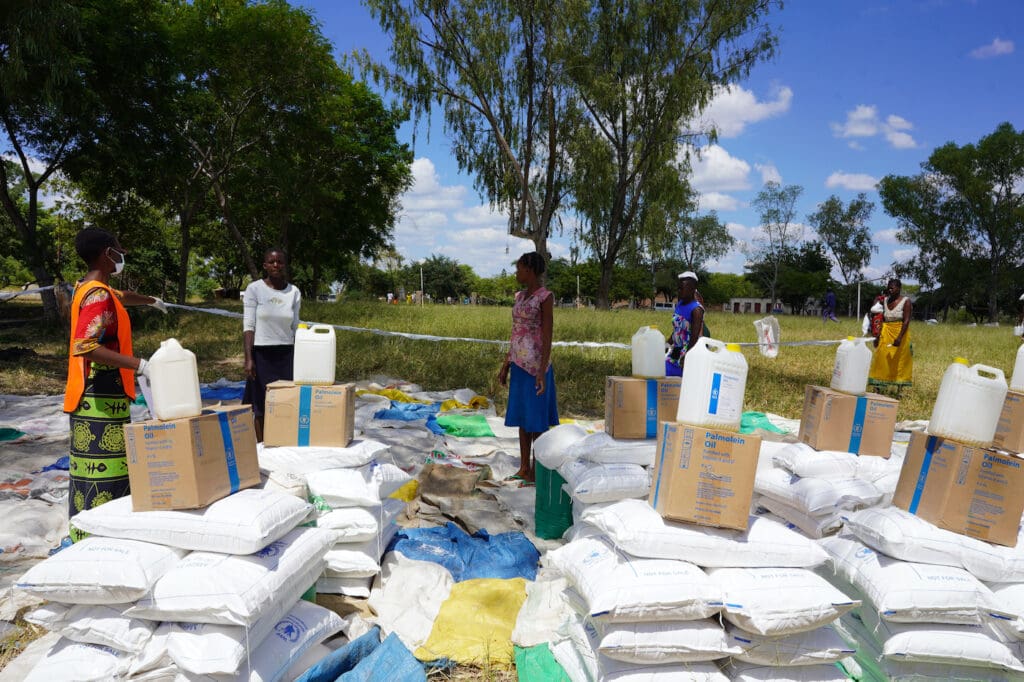
A group of people physically distance in line at a food distribution center.
With hunger peaking, the looming COVID-19 pandemic threatens to exacerbate Zimbabwe’s dire economic and hunger crises. WFP’s recent analysis on the economic impact of COVID-19 on food security suggests that the forthcoming agricultural season — so crucial for millions of Zimbabweans — may again be compromised by either reduced agricultural labour because of the lockdown, or lack of access to agricultural inputs due to supply chain disruptions.
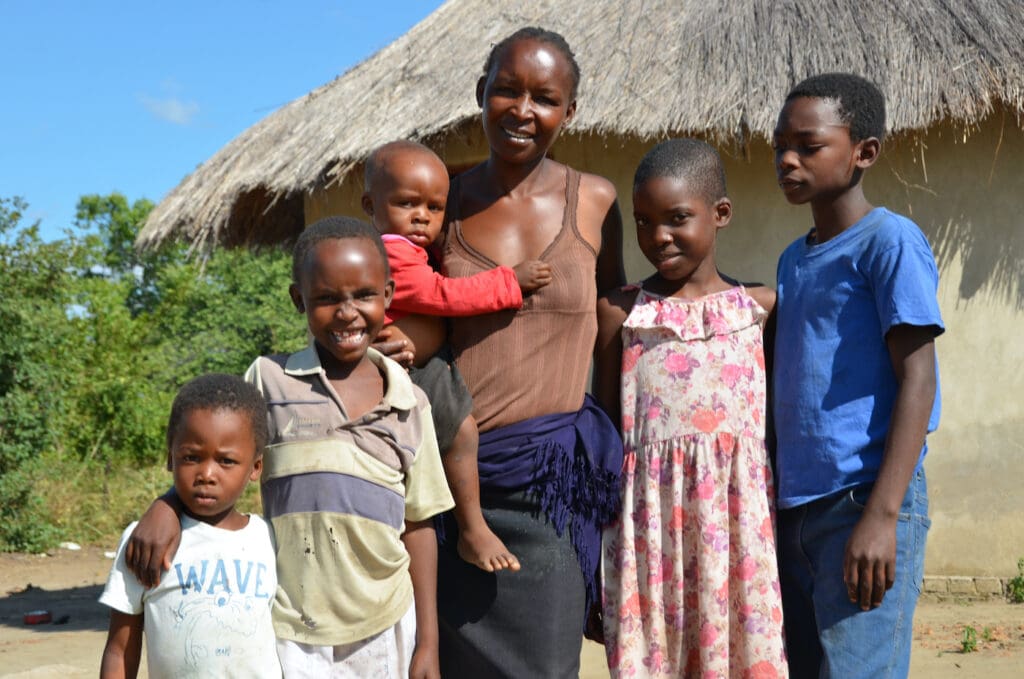
Rebecca and all five of her children outside their home in Shamva.
In some ways, women and girls are even more exposed to the pandemic
Rebecca fears that the spread of COVID-19 in Zimbabwe will bring an end to the food she is receiving from WFP. “If all borders are closed then food transportation to our communities will be affected as well,” she says. “Lack of access to food means more hunger for our families here.”
“At the end of the day, women and girls are at the receiving end of the coronavirus. It will affect us more than anyone else. Why? Because it’s us women who do the household chores all the time. We are the ones who fetch firewood for cooking from the bush. We are the ones who fetch water from unprotected wells, and it needs two to three people to pump it. We cannot do social distancing. We are the most at risk.”
WFP’s crucial role
Eddie Rowe, WFP’s Country Director in Zimbabwe, is adamant that its operations must and will continue uninterrupted by the coronavirus. “WFP has a critical role to play by sustaining a scaled-up food assistance program while supporting Zimbabwe’s response to the pandemic,” he says. “We must be able to deliver at full capacity.” WFP has negotiated with the Government of South Africa to ensure it keeps the humanitarian corridor open, and the flow of food into Zimbabwe remains uninterrupted.
WFP is pre-positioning three months’ worth of food through key supply corridors, while securing financing to support cash transfers for the same period — including in urban areas.
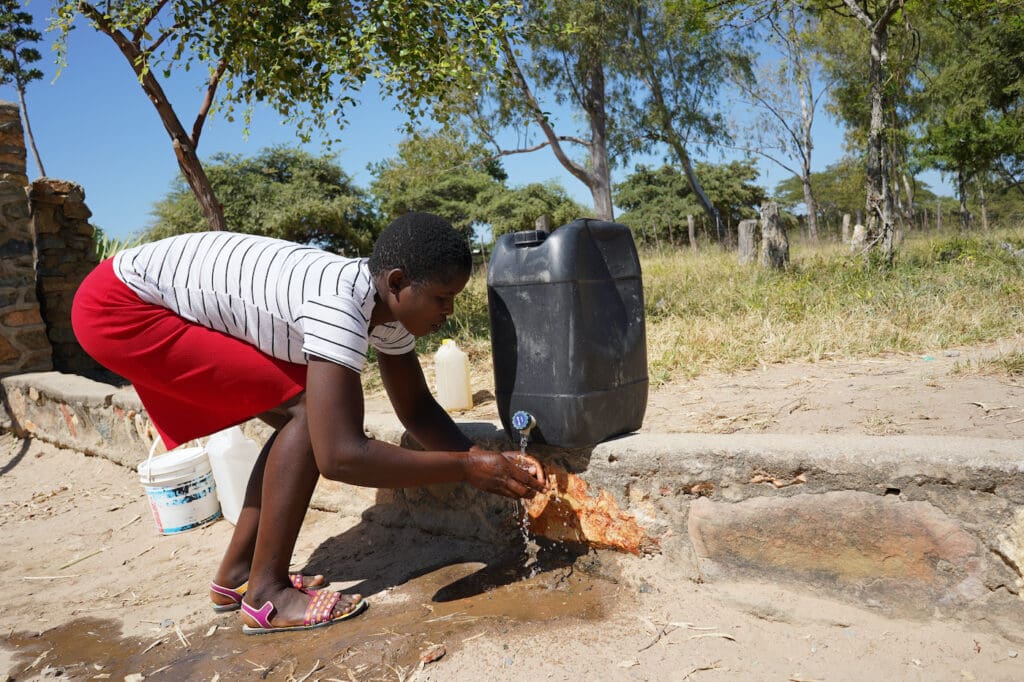
A woman washes her hands at a hand washing station at a WFP food distribution center.
At all food distribution sites, like the one Rebecca is attending in Shamva, WFP is rolling out new risk-control measures. These include increasing the number of distributions to limit overcrowding, monitoring social distancing, and providing protective clothing for all partners and staff, along with hand-washing facilities and a new device for scanning digital registration cards at a distance.
With WFP’s footprint on the ground spanning mountains and villages in Zimbabwe, it is playing an enormous role in the government’s effort to pass on essential health and safety messages to counter the spread of COVID-19.
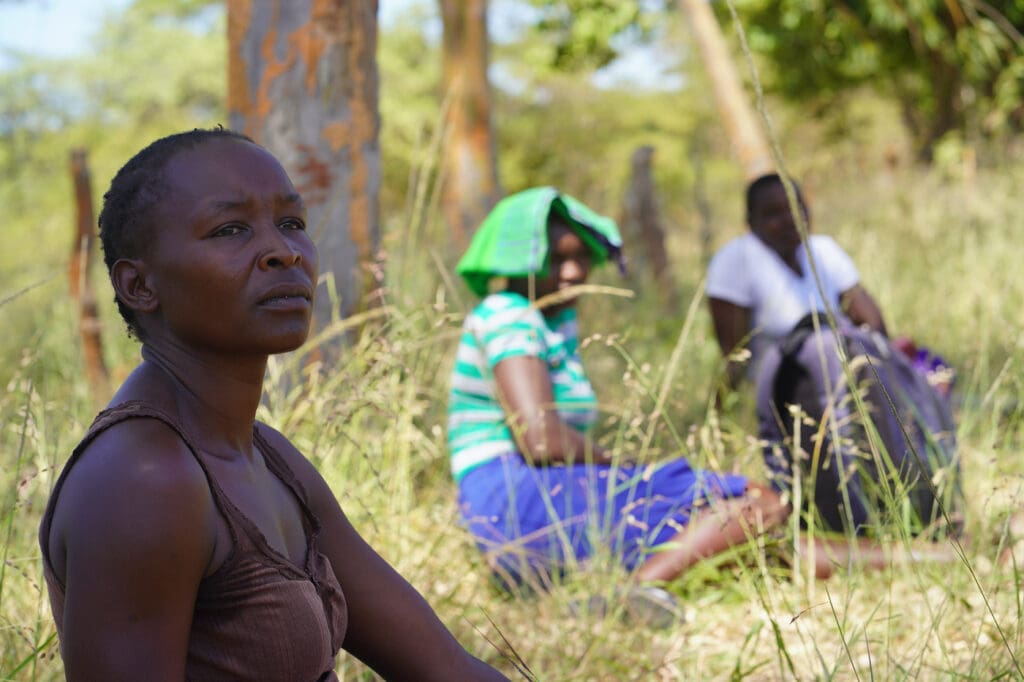
Rebecca waits for food at a distribution center, making sure to socially distance from other women.
“Last month before the pandemic hit, we would gather in large groups, depending on how big your family is, to collect and share out the food,” Rebecca explains. “We are now being supervised by health workers — they come and tell us how to sit, practicing social distancing, and that we should not be close to each other.”
Back at home, Rebecca’s children gather around as she serves a porridge of corn meal by the fire.
“As a mother I always want my kids to have the best life they can,” she says. “I want to see all five of them going to school with all the books, uniforms and shoes. For now, our only hope is the food we are receiving.”
Unless the $130 million WFP needs to fully implement its emergency operation through August is promptly received, millions in Zimbabwe will be plunged deeper into hunger.
Click here to donate and help WFP save lives and change lives in Zimbabwe.
This story was written by Claire Nevill and originally appeared on WFP’s Insights.




